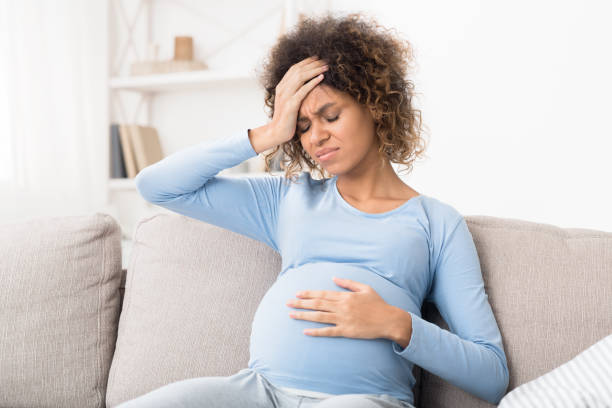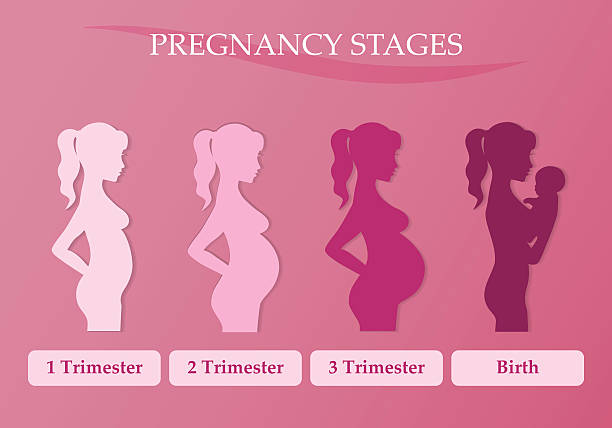Carrying a baby is the most rewarding experience a woman can enjoy. But having a baby also comes with its challenges, including pregnancy insomnia. Pregnancy insomnia usually starts during the middle to late stages of pregnancy and can last until delivery.
Several factors, including physical discomfort, emotional stress, medical conditions, and hormonal changes, can cause pregnancy insomnia. Medical conditions such as gestational diabetes can lead to frequent urination throughout the night, which disrupts sleep.
Hormonal changes due to the increased levels of progesterone during pregnancy can also cause sleep disruptions as it is known to reduce the amount of deep, restorative sleep.
Choices Women’s Clinic strives to provide compassionate, comprehensive care during and after pregnancy. Our team of experienced physicians and nurses can help diagnose the cause of your insomnia and create a personalized treatment plan just for you. This blog post will discuss coping with pregnancy insomnia, tips for getting a better night’s rest, and other services our clinic offers. So, let’s get started!
Pregnancy Insomnia | A Basic Explanation
Pregnancy insomnia or obstructive sleep apnea (OSU) is a sleep disorder that affects expecting mothers. It’s characterized by difficulty falling asleep and staying asleep, as well as frequent waking throughout the night. Symptoms can include irritability, fatigue, and difficulty concentrating during the day.
The cause of pregnancy insomnia isn’t completely understood, but it could be related to physical discomfort or emotional stress. As the body changes during pregnancy, some women may find it challenging to get into a comfortable position to fall asleep.
The American Pregnancy Association states that insomnia during pregnancy commonly affects approximately 78 percent of pregnant women. It tends to impact moms-to-be more during their first and third trimesters due to hormonal changes, while the second trimester is relatively less affected. Although frustrating, this is a normal part of the pregnancy journey.
Pregnancy Insomnia | Causes
The causes of pregnancy insomnia are multifaceted and often intrinsically tied to the changes a woman’s body undergoes during pregnancy. Here’s what causes difficulty sleeping:
Physical Discomfort
As the baby grows, the mother may experience increased discomfort, especially in the latter stages of pregnancy. This discomfort can make finding a comfortable position challenging, leading to disrupted sleep.
Hormonal Changes
High progesterone levels can reduce the amount of REM sleep, the stage where most dreaming occurs and the brain processes memory and emotions. This disruption can lead to frequent waking and restless sleep.
Stress And Anxiety

Pregnancy is a time of significant life change, which can bring about stress and anxiety. Worries about the baby’s health, financial concerns, changes in work or living situations, and anticipation and fear about labor can all contribute to trouble sleeping.
Medical Conditions
Certain medical conditions that are more prevalent during pregnancy can further disrupt sleep. For example, gestational diabetes can cause an increase in urination, leading to frequent night-time bathroom trips, which can disrupt sleep.
Diet And Nutrition
The food and drinks that we consume can also have an impact on our sleep. Eating too much or too close to bedtime can cause the digestive system to stay active at night. Additionally, caffeine stimulates the body, making it harder for some women to fall asleep and stay asleep.
The Start Of Pregnancy Insomnia
Pregnancy insomnia usually starts during the middle to late stages of pregnancy and can last until delivery. Insomnia pregnancy is more common in the first and third trimesters due to changes in body weight, size, hormonal levels, and increased stress.
It’s not always easy to get a good night’s sleep when pregnant. Pregnant women may also feel exhausted during the day due to disturbed sleep. Although daytime fatigue is normal during pregnancy, it can be tough to manage and significantly impact the quality of life.
Pregnancy Insomnia | A Trimester Breakdown

As mentioned before, pregnancy insomnia affects a woman differently throughout her pregnancy. Below is an overview of what to expect in each trimester.
First Trimester Insomnia
During the first trimester, hormonal changes can drive insomnia, particularly increased progesterone levels. This hormone plays a vital role in maintaining pregnancy, but it can disrupt the sleep-wake cycle leading to insomnia.
The shift in hormones primarily causes insomnia in early pregnancy insomnia. Additionally, frequent trips to the bathroom due to increased urination, nausea, and increased anxiety about the new pregnancy can contribute to sleep deprivation.
1. Emotional Changes In The First Trimester
A significant factor contributing to insomnia during the first trimester of pregnancy is the emotional changes and heightened anxiety associated with this period.
Pregnant moms often grapple with concerns about their baby’s health, upcoming life changes, and parenting responsibilities. These emotions can wreak havoc on sleep patterns, making it harder to drift off at night.
2. Physical Changes And Discomfort In The First Trimester
During the first trimester, a woman’s body adjusts to the pregnancy. There’s an increase in the production of blood and bodily fluids, and the uterus begins to grow, which can lead to discomfort and frequent urination.
Additionally, many women experience morning sickness during the first trimester, which can result in nausea and vomiting at night.
3. Hormonal Changes In The First Trimester
Hormonal changes during the first trimester can also contribute to insomnia. The surge in progesterone levels can cause a disruption in the sleep-wake cycle and reduce REM sleep, reducing the overall quality of rest.
Other hormones, such as estrogen and human chorionic gonadotropin (HCG), may also disturb sleep patterns.
Second Trimester Insomnia
They are often called the ‘honeymoon phase’ of pregnancy; the second trimester may relieve insomnia early pregnancy for many women. The body has adjusted to the hormonal changes, nausea typically subsides, and the increase in abdomen size is not significant enough to cause major discomfort during sleep.

However, this is not the case for all women. Second-trimester insomnia can still be triggered by leg cramps, restless legs syndrome, heartburn, and vivid dreams or nightmares.
1. Emotional Changes In The Second Trimester
During the second trimester, many women feel more emotionally stable, which can lead to better sleep. Pregnancy’s initial shock and anxiety fade and are replaced with excitement and anticipation.
However, this period can also be fraught with emotional fluctuations due to hormonal changes. The emotional rollercoaster can sometimes lead to sleep disruption, causing insomnia.
2. Physical Changes And Discomfort In The Second Trimester
While the second trimester is often more comfortable than the first, it comes with its physical changes and potential discomforts. For instance, as the baby grows, some women may experience round ligament pain – a sharp or stabbing pain on one or both sides of the abdomen.
This pain can occur during sudden movements, such as turning in bed, which could disrupt sleep. Additionally, the increased pressure on the bladder may lead to even more frequent bathroom trips compared to the first trimester.
3. Hormonal Changes In The Second Trimester
Hormonal changes in the second trimester are similar to those during the first, but their effects are less dramatic. The surge in progesterone can still disrupt sleep patterns, but it is usually not as pronounced as during the first trimester.
Other hormones, such as estrogen and human chorionic gonadotropin (HCG), may still contribute to sleep disturbances.
Third Trimester Insomnia
The third trimester is when insomnia can return or worsen for many women. During the third trimester, insomnia becomes a common issue again, as the anticipation of childbirth and the physical discomforts associated with the advanced stages of pregnancy can interfere with sleep.
Despite the discomfort and sleep interruptions, it’s still essential to prioritize rest as much as possible to prepare for the baby’s arrival.
1. Emotional Changes In The Third Trimester
As the delivery time draws near, expectant mothers in the third trimester often experience a surge of emotional changes.
It is common to feel a flutter of excitement mixed with anxiety and fear about labor, childbirth, and the responsibility of caring for a newborn. These emotional changes can lead to restlessness and sleep disturbances.
2. Physical Changes And Discomfort In The Third Trimester
The third trimester brings significant physical changes and discomforts that can disrupt sleep. As the baby grows, the enlarged uterus puts pressure on the bladder, causing frequent urination and requiring multiple bathroom trips during the night.
The increased abdomen size can also make finding a comfortable sleeping position challenging, leading to tossing and turning. Women in their third trimester may also experience back pain, leg cramps, and heartburn, which can disrupt sleep.
3. Hormonal Changes In The Third Trimester
Hormonal changes in the third trimester can further exacerbate sleep problems. The body increases the production of prolactin, a hormone that prepares the body for breastfeeding, which can alter sleep patterns.
If you’re feeling overwhelmed by the insomnia brought on by pregnancy, Choices Women’s Clinic can help. Our experienced team of doctors, nurses, and counselors is here to support and advise on managing your sleep issues during this special time.
How to manage pregnancy insomnia
If you are struggling with insomnia during pregnancy, there are steps you can take to help manage your symptoms. Before trying any home remedies or treatments, you must talk to your doctor and follow their recommended course of action.
1. Relaxation Exercises

Deep breathing, yoga, meditation, and progressive muscle relaxation are all effective relaxation techniques for pregnant women struggling with insomnia. Taking a few minutes daily to practice relaxation exercises can help reduce stress and create a sense of calm to promote better sleep.
2. Exercise Regularly
Regular exercise is one of the best remedies for improving sleep quality, especially during pregnancy. Low-impact activities such as walking, swimming, yoga, or stretching can help improve your sleep and reduce insomnia. However, checking with your doctor before starting any exercise regimen is essential.
3. Make Bedtime A Ritual
Creating a regular bedtime routine can be an effective way to combat insomnia during pregnancy. This could include taking a warm bath or shower, reading a book, drinking herbal tea, or listening to calming music before bed. These activities can help you relax and make it easier to fall asleep each night.
4. Avoid Stimulants
Caffeine, nicotine, and alcohol should be avoided in the hours leading up to bedtime, as they can disrupt sleep patterns. Additionally, stimulant drugs such as amphetamines or cocaine should never be taken during pregnancy as they can cause serious health complications for both mother and baby.
5. Eat And Drink Healthily

Eating a healthy diet is essential during pregnancy, significantly improving sleep quality. Eating too close to bedtime may make it more challenging to fall asleep, so try to eat dinner at least three hours before bed. Additionally, avoiding fluids in the evening can help reduce bathroom trips during the night.
6. Get Comfortable
Creating a comfortable sleep environment is critical to promoting better sleep and reducing insomnia for pregnant women. A supportive mattress, pillows, blankets, and cozy pajamas can all make it easier to fall asleep and stay asleep through the night.
If insomnia persists despite trying these remedies, talk to your doctor about other treatment options, such as cognitive-behavioral therapy or prescription medications. With the right combination of treatments and lifestyle changes, you can find relief from insomnia during pregnancy and have a healthy, restful pregnancy.
Conclusion
Sleep disturbances such as insomnia are common during pregnancy and can often be managed with lifestyle changes and home remedies. However, speaking to your doctor about other options is essential if insomnia persists despite trying these treatments.
With the right combination of treatments and lifestyle modifications, you can find relief from insomnia and have a healthy, restful pregnancy. Pregnant women should also take extra care to prioritize their mental and physical health during this time. Regular exercise, healthy eating habits, healthy sleep habits, and relaxation exercises can all help reduce stress levels and improve sleep quality.
Choices Women’s Clinic is always here to help if you need support or advice. We are dedicated to providing personalized care and comprehensive support throughout your pregnancy journey. Reach out today for more information.





